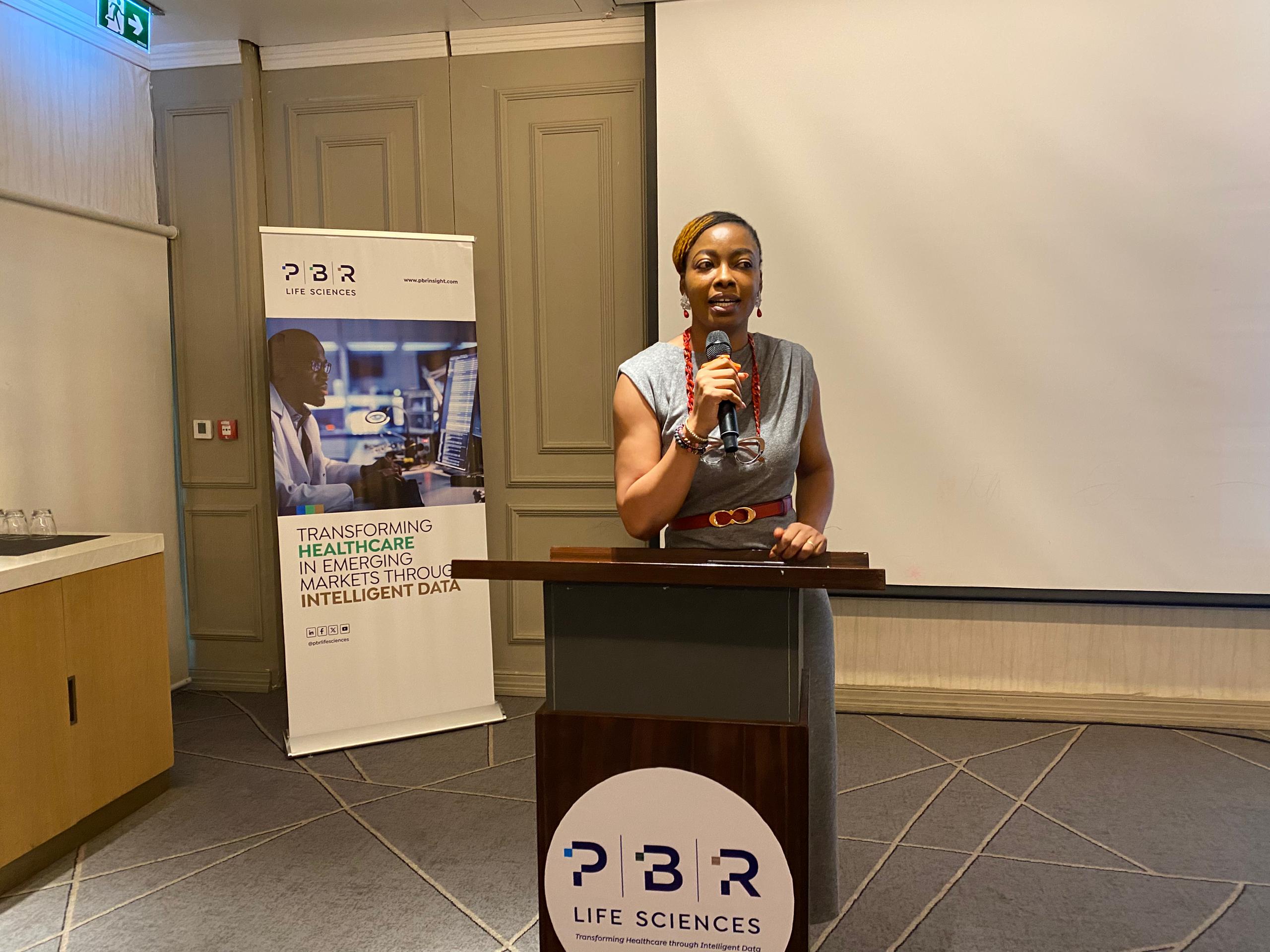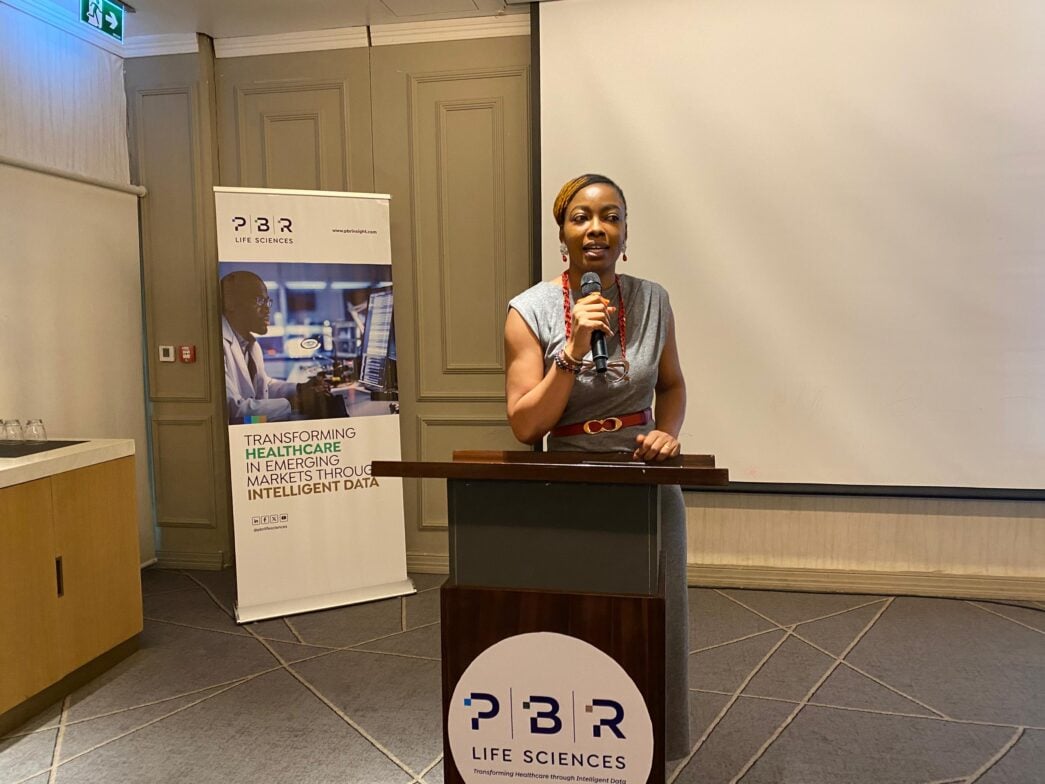Adesola Arowolo, chief growth & revenue officer PBR Life Sciences
Ayodeji Alaran, CEO of PBR Life Sciences, says the country’s pharmaceutical industry is at a “pivotal moment”.
He added that 70 percent of medicines consumed in Nigeria are imported.
“This leaves our healthcare system vulnerable to currency fluctuations, supply chain disruptions, and escalating costs,” he said.
He was speaking at the 2025 Nigeria Pharmaceutical Industry Growth and Investment Summit, hosted by PBR Life Sciences in Lagos on Thursday.
Advertisement
He noted that with Nigeria’s population projected to surpass 377 million by 2050 and a pharmaceutical market forecast to hit $1.01 billion by 2028, local manufacturing has become a strategic and economic imperative.
“We can no longer afford to rely on fragile global supply chains for critical medicines,” Alaran said.
“We must build resilient, homegrown manufacturing capacity that secures access, reduces costs, and unlocks economic growth. The question is not whether we can afford to invest — it’s whether we can afford not to.”
Advertisement
‘NIGERIA’S LIFE SCIENCES SECTOR WORTH $46BN, SET TO DOUBLE BY 2030’
Abdu Mukhtar, national coordinator of the Presidential Initiative for Unlocking the Pharmaceutical Value Chain (PVAC), says Nigeria’s life sciences sector is valued at $46 billion and is projected to double by 2030.
Mukhtar said the federal government is implementing broad reforms to improve healthcare delivery, expand local production, and reduce reliance on imported medical supplies.
He added that the initiative aligns with the federal government’s Health Sector Investment Renewal Strategy, which aims to strengthen primary healthcare, expand insurance coverage, and prepare the country for future pandemics.
Advertisement
“One of our key mandates is to increase the share of locally produced healthcare products — pharmaceuticals, vaccines, and medical devices,” he said.
“As you know, in Nigeria, we import almost 80 percent of the essential medicines we use. We import nearly 100 percent of our vaccines and around 99 percent of medical devices, including test kits. This is no longer tenable.”
He said with a population of over 230 million, Nigeria is the only country among its peers that still imports more than half of its essential healthcare commodities.
Mukhtar said efforts are also under way to train a new generation of pharmaceutical professionals through a manufacturing academy, while engaging in development finance institutions to unlock capital for local production.
Advertisement
By 2030, Mukhtar said, Nigeria should be able to locally produce at least 70 percent of the healthcare products it consumes across multiple product lines.
He encouraged investors to view healthcare as a profitable and high-growth sector, citing the opportunity for private investment to significantly boost Nigeria’s GDP.
Advertisement
“In Nigeria, the healthcare sector accounts for just 3 to 4 percent of GDP. In countries like the US, it’s 17 to 18 percent. This gap shows there’s huge room for growth… especially in pharmaceuticals, hospitals, digital health, and related services,” he said.
“Right now, the life sciences sector in Nigeria is about $46 billion. We expect it to more than double by 2030. For private equity, venture capital, and institutional investors, this is a viable and impactful opportunity. You can make money — and a difference — at the same time.”
Advertisement
WHY NIGERIA MUST BUILD RESILIENT, HOMEGROWN MANUFACTURING
In his keynote address, Chimezie Anyakora, CEO of Bloom Public Health, harped on the importance of ecosystem development beyond factory-level interventions.
Advertisement
He said while PVAC and similar efforts are commendable, progress would stall without deliberate investment in auxiliary services such as packaging, printing, and technical support.
“If Nigerian manufacturers can’t meet global standards today, that shouldn’t be the case next year. The issue is structural,” he said.
“Despite having over 200 pharmaceutical companies, most technical services still come from abroad. That doesn’t make sense for a market of our size.”
Anyakora advocated for the creation of pharmaceutical parks to centralise operations, lower production costs, and attract foreign investment.
“Running within a pharmaceutical park can reduce operating costs by up to 35 percent. More importantly, it creates a cluster of expertise, drives innovation, and brings in capital,” he said.
He called on the government to reinvest a significant portion of medicine procurement funds into the local economy and challenged investors to treat the sector as a business and national security imperative.
“Africa is attracting capital — why not Nigerian pharma?” he asked.
In a panel discussion, Dennis Aizobu, managing director of SFH Access, added that long gestation periods and foreign exchange volatility make pharmaceutical investment particularly risky in Nigeria.
He said while healthcare demand is high, local financing often lacks the patience needed for the 18 to 24-month product cycle typical in pharma manufacturing.
“You need risk-sharing mechanisms, development guarantees, and blended finance to de-risk the process,” Aizobu said.
“We must move from ad hoc financing to structured collaboration between private investors, government, and development partners.”
Other speakers at the event included Ahmed Yakasai; former president of the Pharmaceutical Society of Nigeria (PSN); Omorinsola Ipaye, CEO of Efunpo Pharma; Adetunji Sekoni, principal at CardinalStone Capital Advisers; Chishamiso Mawoyo, senior investment officer at IFC; Olufemi Olaleye of Sterling bank; Jordy Kiange Beni of Octerra Capital; Sammy Ogunjimi, CEO of Codix Group; Chimdindu Onwudiegwu, associate partner at Dalberg; and Olayemi Oladiran, COO of Alpha Orion Nigeria.













